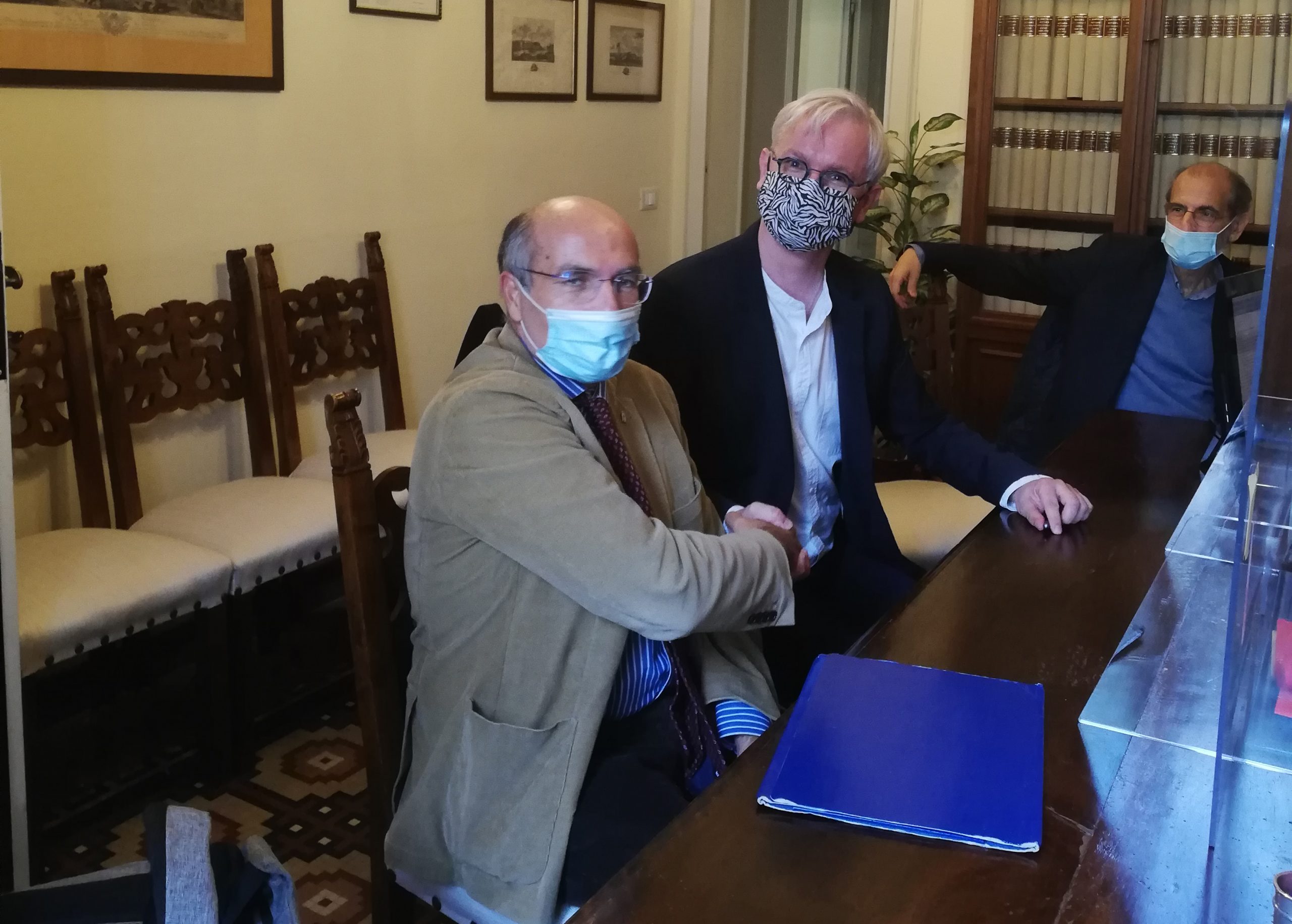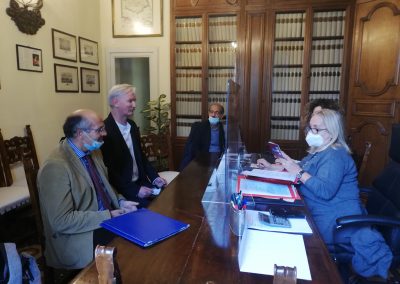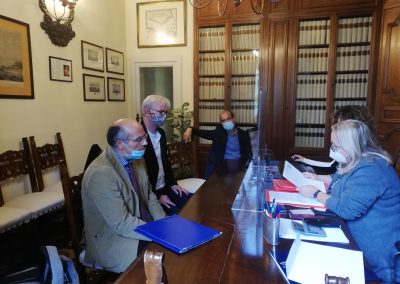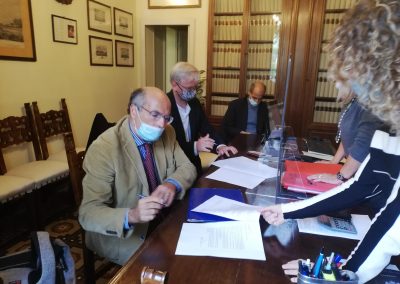The EGO council president Marco Pallavicini and vice-president Berrie Giebels signed yesterday, on behalf respectively of INFN and CNRS, the renewal of the contract of the EGO consortium, closing 20 years of existence this December, for another 5 years. Thus the EGO structure and personnel can actively accompany the preparation and runs of the Advanced Virgo+ upgrade in the context of the global collaboration with LIGO and KAGRA.
“On the occasion, it is important to note once more the historical importance of EGO this unique institutional European infrastructure – states the EGO director, Stavros Katsanevas – that permitted resilience in times of uncertainty and accompanied the discovery of Gravitational Waves by LIGO and Virgo and the continuous series of crucial scientific results obtained in this field in these last years. Hopefully this big event will be followed shortly by others, as for instance the increase of the members of the consortium, after the conclusion of the discussions currently in progress. It is therefore a message of stability and hope in these difficult times of pandemic.“
EGO, the European Gravitational Observatory was created 20 years ago (11 December 2000) by the “Centre National de la Recherche Scientifique” (CNRS), a French public, scientific and technological institution, and the Italian “Istituto Nazionale di Fisica Nucleare” (INFN). The NIKHEF Laboratory (The Netherlands) joined in 2007 with an observer status. The EGO Consortium has as its purpose the promotion of research in the field of gravitation in Europe. In particular the Consortium ensures the functioning of the Virgo antenna, its maintenance, its operation and the improvements to be made, carries out any other research in the field of gravitation of common interest for the Members, promotes contacts among scientists and engineers, the dissemination of information and the provision of advanced training for young researchers.




